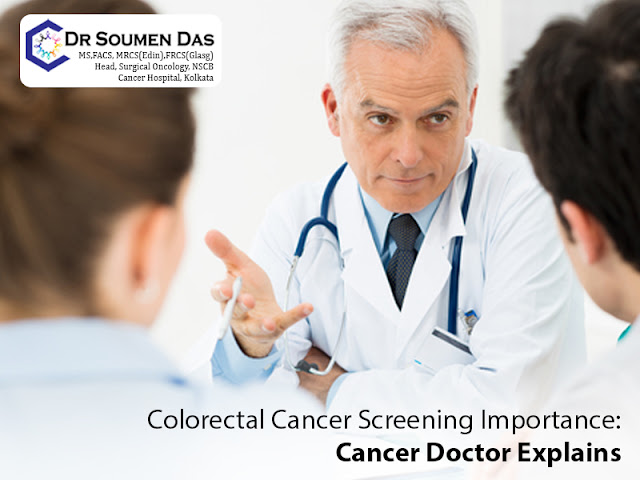Colorectal Cancer Screening Importance: Cancer Doctor Explains
Colorectal cancer is caused by uncontrolled cell division in the colon or rectum. The disease primarily affects people in their 50s.
You may have heard about colorectal cancer screenings and wondered about their significance. So, in this blog, a cancer doctor in Kolkata explains why screening is important and the best screening procedure for colorectal cancer.
Why is Colorectal Cancer Screening Important?
If diagnosed early, colorectal cancer is highly curable. However, it usually does not show symptoms until it progresses into later stages. According to a cancer surgeon in Kolkata, the only way to detect colorectal cancer early is periodic screening. Screening can detect precancerous polyps, which are abnormal growths in the colon or rectum that can be removed before they develop into cancer.
Colonoscopy – Most Effective Screening Procedure
According to a cancer doctor in Kolkata, colonoscopy is the most effective colorectal cancer screening test. It is the only screening test capable of detecting a wide range of colorectal cancers. Here are a few things you should be aware of regarding this exam:
A colonoscopy is a procedure in which a doctor looks for polyps or tumours across the lining of your colon. Polyps can be eliminated right away if they are identified.
You will be given medication to help you relax on the colonoscopy day. Most people fall asleep during the test and have little recollection of it when they wake up.
A colonoscopy is performed by inserting a thin, long and flexible tube called a colonoscope through the rectum into your colon. The colonoscope consists of a tiny video camera and light attached to send images to a video monitor.
Before the procedure, doctors will give you information about what to eat and how to clear your bowels.






Post a Comment
0 Comments